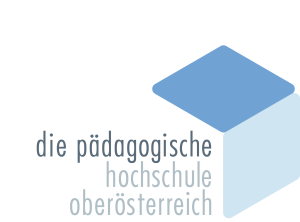MA SE Seminar in Advanced English Studies (LIT/CULT)
Winter Semester 2025/2026
Topic: Narrating Nature
The kinds of stories we tell about nature and about our place within the natural world reveals a lot about how we see the world around us. Narrating nature explores famous and classic texts from a range of literary and media formats to look closely at the affordances and restrictions of each narrative mode, and changing representations of humans in the web of life, from different époques, cultures, and philosophical viewpoints.
Class Literature and Media
Make sure you’ve read everything before class. In class we will only discuss.
Children’s Books (you can watch readings on Youtube & I’ll bring the books to class): Dr Seuss, The Lorax, Shel Silverstein, The Giving Tree, Eric Caryle, The Very Hungry Caterpillar
Novel: The Secret Garden, Frances Hodgson Burnett (1911). Available for free online: https://www.gutenberg.org/files/113/113-h/113-h.htm
Anime film: Nausicaa Valley of the Wind, Studio Ghibli (1984). Available on Netflix.
Documentary: Your choice, eg from Netflix or YouTube. I will use extracts from The Biggest Little Farm (John Chester 2018), and 2040 (Damon Gameau 2019).
- Trainer/in: Kennedy Melissa
- Trainer/in: Kennedy Melissa
- Trainer/in: Kennedy Melissa
Wintersemester 2023/24 Hallmark Happiness: Popular Fiction and the Feel-Good Factor
Many of us read popular fiction, with a favourite novel, author or genre that we re-read for comfort, relaxation, or inspiration. Although popular fiction, including genre fiction such as thrillers, whodunnits, romance, sci-fi fantasy, or YA and children’s lit, far outsell ‘Literature with a big L,’ these bestsellers are rarely considered for their literary qualities, and are rarely studied at university.
This class starts with the reader-response of reading for pleasure, which we explore through the positive aesthetics of recognition, enchantment, shock, and knowledge (Felski 2008). We aim to uncover the many facets of popularity by working with the concept of ‘genre worlds’ (Fletcher et al 2018), taking a cultural approach to the publishing industry, the text itself, and the social world of fandom to look at the big picture of how popular texts interact so fully in our lives. A foray into the social uses of literature further works with arguments from positive psychology, utopian studies, and social economics to explore the positive personal, cultural and social structures much popular fiction promotes as desirable and desired by its massive readership.
Working with one of your own favourite novels of the popular genre, your task for a seminar paper or BA thesis is to develop a language for explaining why you love your chosen book, and to uncover the formal mechanics that create this effect. For the first class, please bring one/a few novels that a) you really enjoyed reading, and b) you consider fit the definition of popular fiction.
Class texts to have read before the semester begins—we only have time to analyse extracts in class:
Romance/YA/graphic fiction: Alice Oseman, Heartstopper volume 1 2016
Thriller: Dan Brown, The Da Vinci Code, 2003
Sci-fi Fantasy: Terry Pratchett and Neil Gaiman, Good Omens: The Nice and Accurate Prophecies of Agnes Nutter, Witch, 1990
Assessment
(10%) Class Participation, including Expert-Reader discussion
(10%) Term Paper plan
(10%) Model Analysis (term paper work-in-progress)
(20%) Own-research presentation
(50%) Term paper or Bachelor Thesis
- Trainer/in: Kennedy Melissa
- Trainer/in: Kennedy Melissa
- Trainer/in: Nuri Laua
- Trainer/in: Panteli Georgia
- Trainer/in: Qin Anna
Module 1: Interpretative approaches (Melissa Kennedy)
The course is intended for students in Proseminars in literature and culture (UFP, UDF, ACCl) as well as for BA and MA thesis writing in literature and culture.
Following 2 input sessions that revise interpretative methods and outline the criteria for analytical and critical essay-writing style and structure, you will then work on your own term papers in class. The course thus provides a chance for feedback and advice on improving your own work.
- Class 1 input: interpretative methodologies
- Class 2 input: analytical critical essay structure and style
- Class 3 starting your own term papers for your pro/seminar courses
- Classes 4 & 5 feedback and help with your term papers
- Trainer/in: Kennedy Melissa
- Trainer/in: Mathys-Parnreiter Simone
- Trainer/in: Kennedy Melissa
- Trainer/in: Mathys-Parnreiter Simone
